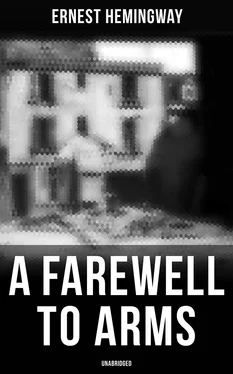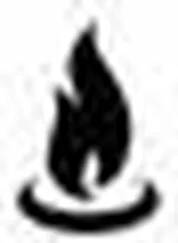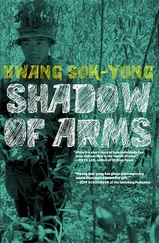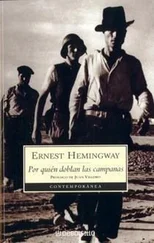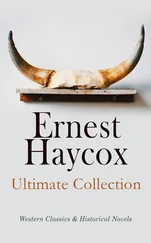“Are you hit badly?” he asked. He was a tall man and wore steel-rimmed spectacles.
“In the legs.”
“It’s not serious I hope. Will you have a cigarette?”
“Thanks.”
“They tell me you’ve lost two drivers.”
“Yes. One killed and the fellow that brought you.”
“What rotten luck. Would you like us to take the cars?”
“That’s what I wanted to ask you.”
“We’d take quite good care of them and return them to the Villa. 206 aren’t you?”
“Yes.”
“It’s a charming place. I’ve seen you about. They tell me you’re an American.”
“Yes.”
“I’m English.”
“No!”
“Yes, English. Did you think I was Italian? There were some Italians with one of our units.”
“It would be fine if you would take the cars,” I said.
“We’ll be most careful of them,” he straightened up. “This chap of yours was very anxious for me to see you.” He patted Gordini on the shoulder. Gordini winced and smiled. The Englishman broke into voluble and perfect Italian. “Now everything is arranged. I’ve seen your Tenente. We will take over the two cars. You won’t worry now.” He broke off, “I must do something about getting you out of here. I’ll see the medical wallahs. We’ll take you back with us.”
He walked across to the dressing station, stepping carefully among the wounded. I saw the blanket open, the light came out and he went in.
“He will look after you, Tenente,” Gordini said.
“How are you, Franco?”
“I am all right.” He sat down beside me. In a moment the blanket in front of the dressing station opened and two stretcher-bearers came out followed by the tall Englishman. He brought them over to me.
“Here is the American Tenente,” he said in Italian.
“I’d rather wait,” I said. “There are much worse wounded than me. I’m all right.”
“Come come,” he said. “Don’t be a bloody hero.” Then in Italian: “Lift him very carefully about the legs. His legs are very painful. He is the legitimate son of President Wilson.” They picked me up and took me into the dressing room. Inside they were operating on all the tables. The little major looked at us furious. He recognized me and waved a forceps.
“Ça va bien?”
“Ça va.”
“I have brought him in,” the tall Englishman said in Italian. “The only son of the American Ambassador. He can be here until you are ready to take him. Then I will take him with my first load.” He bent over me. “I’ll look up their adjutant to do your papers and it will all go much faster.” He stooped to go under the doorway and went out. The major was unhooking the forceps now, dropping them in a basin. I followed his hands with my eyes. Now he was bandaging. Then the stretcher-bearers took the man off the table.
“I’ll take the American Tenente,” one of the captains said. They lifted me onto the table. It was hard and slippery. There were many strong smells, chemical smells and the sweet smell of blood. They took off my trousers and the medical captain commenced dictating to the sergeant-adjutant while he worked, “Multiple superficial wounds of the left and right thigh and left and right knee and right foot. Profound wounds of right knee and foot. Lacerations of the scalp (he probed — Does that hurt? — Christ, yes!) with possible fracture of the skull. Incurred in the line of duty. That’s what keeps you from being court-martialled for self-inflicted wounds,” he said. “Would you like a drink of brandy? How did you run into this thing anyway? What were you trying to do? Commit suicide? Anti-tetanus please, and mark a cross on both legs. Thank you. I’ll clean this up a little, wash it out, and put on a dressing. Your blood coagulates beautifully.”
The adjutant, looking up from the paper, “What inflicted the wounds?”
The medical captain, “What hit you?”
Me, with the eyes shut, “A trench mortar shell.”
The captain, doing things that hurt sharply and severing tissue — “Are you sure?”
Me — trying to lie still and feeling my stomach flutter when the flesh was cut, “I think so.”
Captain doctor — (interested in something he was finding), “Fragments of enemy trench-mortar shell. Now I’ll probe for some of this if you like but it’s not necessary. I’ll paint all this and — Does that sting? Good, that’s nothing to how it will feel later. The pain hasn’t started yet. Bring him a glass of brandy. The shock dulls the pain; but this is all right, you have nothing to worry about if it doesn’t infect and it rarely does now. How is your head?”
“Good Christ!” I said.
“Better not drink too much brandy then. If you’ve got a fracture you don’t want inflammation. How does that feel?”
Sweat ran all over me.
“Good Christ!” I said.
“I guess you’ve got a fracture all right. I’ll wrap you up and don’t bounce your head around.” He bandaged, his hands moving very fast and the bandage coming taut and sure. “All right, good luck and Vive la France.”
“He’s an American,” one of the other captains said.
“I thought you said he was a Frenchman. He talks French,” the captain said. “I’ve known him before. I always thought he was French.” He drank a half tumbler of cognac. “Bring on something serious. Get some more of that Anti-tetanus.” The captain waved to me. They lifted me and the blanket-flap went across my face as we went out. Outside the sergeant-adjutant knelt down beside me where I lay, “Name?” he asked softly. “Middle name? First name? Rank? Where born? What class? What corps?” and so on. “I’m sorry for your head, Tenente. I hope you feel better. I’m sending you now with the English ambulance.”
“I’m all right,” I said. “Thank you very much.” The pain that the major had spoken about had started and all that was happening was without interest or relation. After a while the English ambulance came up and they put me onto a stretcher and lifted the stretcher up to the ambulance level and shoved it in. There was another stretcher by the side with a man on it whose nose I could see, waxy-looking, out of the bandages. He breathed very heavily. There were stretchers lifted and slid into the slings above. The tall English driver came around and looked in, “I’ll take it very easily,” he said. “I hope you’ll be comfy.” I felt the engine start, felt him climb up into the front seat, felt the brake come off and the clutch go in, then we started. I lay still and let the pain ride.
As the ambulance climbed along the road, it was slow in the traffic, sometimes it stopped, sometimes it backed on a turn, then finally it climbed quite fast. I felt something dripping. At first it dropped slowly and regularly, then it pattered into a stream. I shouted to the driver. He stopped the car and looked in through the hole behind his seat.
“What is it?”
“The man on the stretcher over me has a hemorrhage.”
“We’re not far from the top. I wouldn’t be able to get the stretcher out alone.” He started the car. The stream kept on. In the dark I could not see where it came from the canvas overhead. I tried to move sideways so that it did not fall on me. Where it had run down under my shirt it was warm and sticky. I was cold and my leg hurt so that it made me sick. After a while the stream from the stretcher above lessened and started to drip again and I heard and felt the canvas above move as the man on the stretcher settled more comfortably.
“How is he?” the Englishman called back. “We’re almost up.”
“He’s dead I think,” I said.
The drops fell very slowly, as they fall from an icicle after the sun has gone. It was cold in the car in the night as the road climbed. At the post on the top they took the stretcher out and put another in and we went on.
Читать дальше
